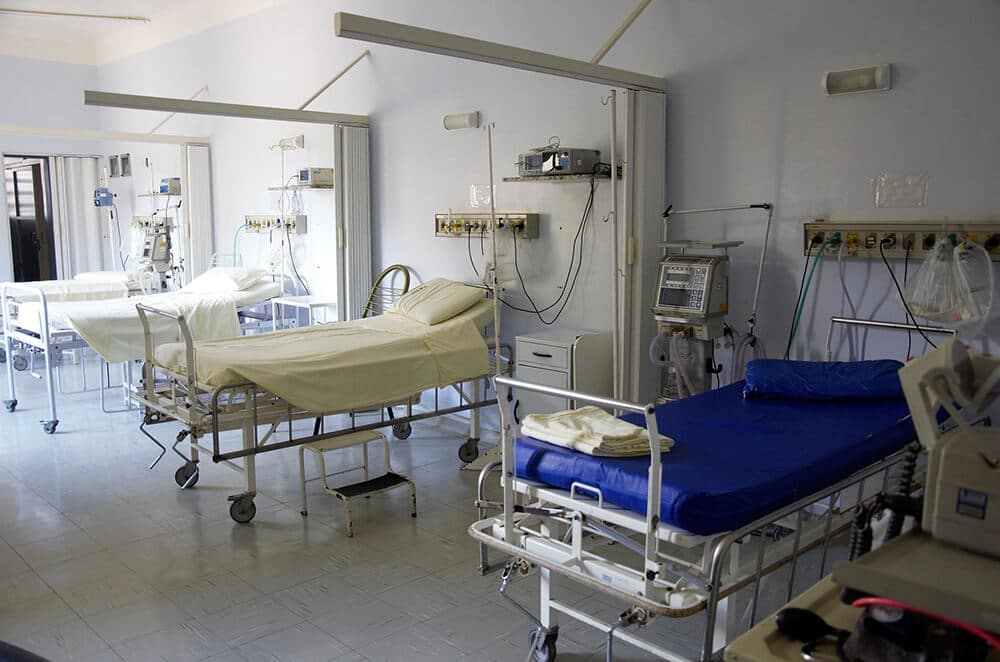When someone develops an infection and seeks treatment, it’s imperative that the care team identify what’s going on and implement treatment as quickly as possible. When doctors or nurses neglect to diagnose infection in a hospital, the patient’s condition can deteriorate quickly.
Patient care should be the number one priority for all medical professionals. When it isn’t, preventable mistakes are made. When an infection isn’t diagnosed in time, it’s common for other complications to arise, especially if a patient has a compromised immune system. Let’s take a look at common infections patients develop and what happens if a doctor neglects to diagnose the condition.
Common Infections in Hospitals
If you enter into a hospital with an infection or you develop one while you’re there, it’s imperative your care team determine what’s going on as quickly as possible, so you can be administered the proper medication to help your body fight the infection. Some of the most common infections that aren’t diagnosed properly include:
- Gastrointestinal infections. These are sometimes associated with prolonged antibiotic use. When an antibiotic is prescribed, there’s a chance it will kill off the good bacteria in the digestive tract. When that happens, a patient may experience intestinal problems or a worsening of the original illness that called for the antibiotics.
- Urinary tract infections (UTI). When germs enter the urinary tract, they can have an effect on the bladder and kidneys. While they can develop for a number of reasons outside of a medical setting, in hospitals they’re often associated with the use of a catheter.
- Primary bloodstream infections. This type of infection can quickly become fatal if not treated properly. When germs enter the bloodstream, the body’s organs may begin to shut down if treatment is administered promptly. In hospitals, primary bloodstream infections often result from nonsterile surgical tools, improperly dressed surgical wounds, and nonsterile IV lines.
- Ventilator-associated pneumonia. Patients are put on ventilators when they need help breathing. The machine supplies oxygen through a tube in the nose, mouth, or through a hole in the neck. When sterilization protocols aren’t followed, the patient can develop pneumonia.
No matter what type of infection a physician failed to diagnose you with, it’s important to understand that you can take legal action to hold them accountable for their neglect.
Understanding the Risk Factors for Acquiring an Infection
There are three primary risk factors associated with acquiring an infection. Physicians need to be aware of these risk factors so they can prevent infection or quickly identify when one has developed so the patient can receive proper treatment.
Patient risk factors include the duration of their stay in a clinic setting, the severity of the illness, injury, or condition for which they were admitted, and how their immune system functions. There are also organization risk factors, which primarily relate to the cleanliness of a facility. Elements like the filtration of the HVAC system, the quality of the water, and the sterility of medical devices and building surfaces affect this risk factor. Lastly, there are iatrogenic risk factors. This includes the care with which hands are washed, antibiotics are used, and how invasive procedures are handled.
Complications from Failing to Diagnose Infection in a Hospital
For a medical professional, the signs of infection should not be challenging to identify. Whenever a patient is experiencing fever, chills, increased urination, redness, soreness, or swelling in any area of the body, vomiting, diarrhea, or new-onset pain, those should be red flags that an infection could be present. Doctors should order blood tests, radiological tests, and other types of lab work to determine what type of infection is present. If done properly, the physician should be able to narrow down what the patient is dealing with.
Failing to diagnose infection is often the result of negligent actions or inaction. If nursing staff fail to properly document symptoms, the doctor won’t have the information they need to make a proper diagnosis. Issues also arise when a differential diagnosis isn’t performed. If a doctor relies on past experience or shortcuts to diagnose a patient, they’re risking missing the proper diagnosis. In some cases, failed infection diagnoses are made when a doctor does not consult a specialist.
Shrager, Sachs, & Blanco Represents Malpractice Victims
If you believe you’ve been the victim of a misdiagnosed infection in a hospital, our lawyers are here to represent you. We have the knowledge and resources needed to hold the negligent party accountable for their actions and ensure you receive the means you need to recover. To learn more about the benefits of working with a personal injury lawyer after a med mal incident, contact our firm today.









